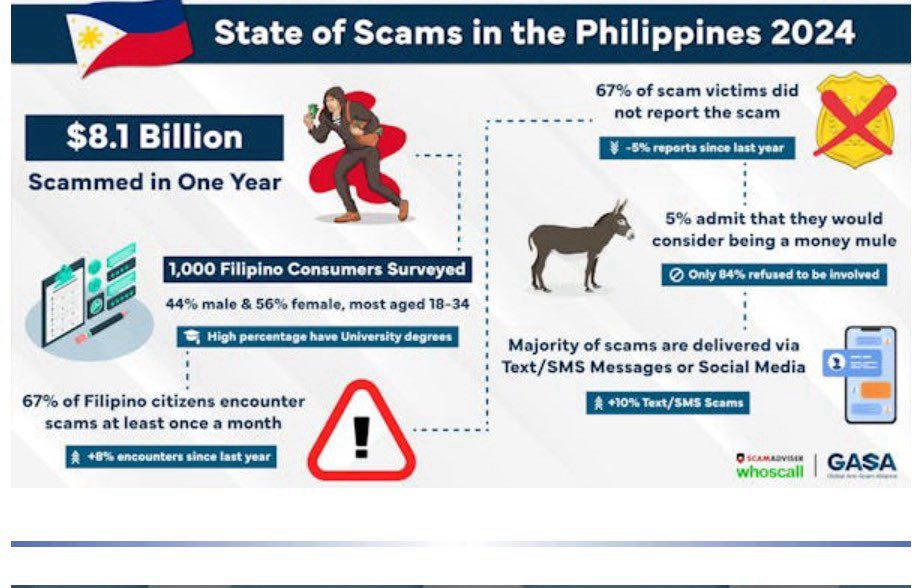The Philippine economy lost an estimated USD8.1 billion, around 1.9 percent of gross domestic product, through online scams despite growing awareness among Filipinos, the 2024 State of Scams in the Philippines report showed.
This development underscores the urgent need for enhanced measures to combat the growing threat of fraud in the digital landscape.

Conducted by the Global Anti-Scam Alliance in partnership with ScamAdviser and Whoscall, the report indicates that 73 percent of Filipinos are confident in their ability to recognize scams, an improvement from the level in 2023. The survey covers 1,000 respondents.
Despite a rise in awareness, 67 percent of respondents reported encountering scams at least once a month, with half of those surveyed noting a surge in scam encounters over the past year. This trend persists despite ongoing efforts by the private sector and the government to curb fraudulent activities.
While awareness of AI-generated scams, particularly text and images, is relatively high, familiarity with AI-generated voice and video scams remains low. The report notes that most scams are delivered via text messages, which have increased by 10 percent from the previous year.
A concerning two-thirds of scam victims did not report their experiences to law enforcement. The report suggests this underreporting reflects a lack of confidence in authorities, with many victims uncertain about whether AI was involved. Other barriers include a lack of clarity on reporting procedures and a belief that reporting would be futile.
Shopping sites were identified as the most common scam type, although 12 percent more people managed to avoid them compared to 2023. Even so, 39 percent of respondents admitted to losing money to fraud, with the average loss amounting to approximately USD275 per victim.
The report underscored that 76 percent of scams are completed within 24 hours of initial contact. Two in every three online fraud victims realize they’ve been scammed on their own, while the rest needed to be informed on family, friends, or online platforms that they have fallen victims to scams.
Recovering lost funds proves nearly impossible, with only 3 percent of victims reporting full recovery of their losses, down from 5 percent in 2023. The emotional toll is significant, as 79 percent of victims lose trust in the internet due to their experiences with scams.
“Filipinos often fall for scams due to attractive offers and hasty decisions, with many expressing uncertainty about the legitimacy of the offers but choosing to take the risk anyway,” the report said.
The findings highlight the critical need for coordinated efforts to protect Filipinos from online scams and restore their trust in digital platforms and government initiatives.
ScamAdviser, a leader in scam prevention, emphasizes the necessity for the Philippines to invest in advanced scam detection technologies to combat this escalating threat.







